
On The Correct Understanding Of Myth, Mythos, And Mythology aryaakasha
The Religion of an Ancient Culture. Mythology is broadly defined as a collection of legends from a particular culture or religious tradition. In the case of Greek mythology, the term refers to the stories and religious beliefs of the ancient Greek people. One idea that people often get wrong about Greek mythology, however, is that there is a.

Greek Mythology Creation Story Explained in 8 Minutes (Animation) YouTube
Nowadays myth is sometimes perceived as something opposed to reality - a fictional tale without connection to real life. Such an understanding has existed for quite a while, having its roots in the ancient world. It was especially prominent in the 19th century, when myth was considered as a primitive outdated counterpart to science or […]
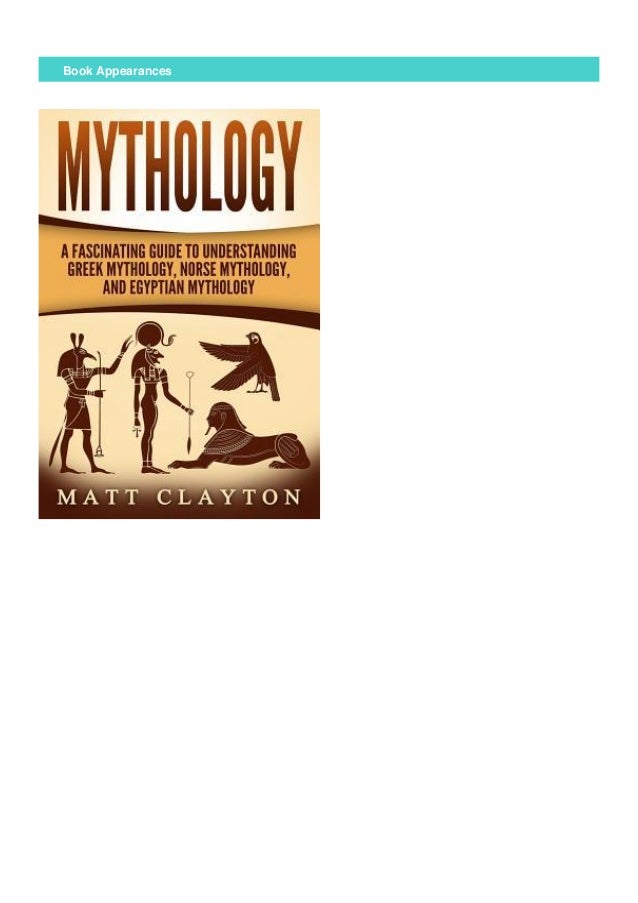
Newlaunchmythologyafascinatingguidetounderstandinggreek
The Concept of Myth. In conjunction with comparing the mythical material, scholars toil with the understanding of how myth was created and what its functions in society are. As the study of myths and the beliefs of archaic societies, in essence, the science of mythology began to develop, it tended to diverge based on researchers.

What are Myths? Simple and Concise Explanation of Mythology YouTube
Greek mythology, and its ancient stories of gods, goddesses, heroes and monsters, is one of the oldest and most influential groups of legends in human civilization.

Cool infographic on Greek Gods Greek mythology gods, Artemis goddess
Mythopedia is the ultimate online resource for exploring ancient mythology; from the Greeks and Romans, to Celtic, Norse, Egyptian and more.. "To elevate our understanding of the stories and beliefs foundational to civilizations past, present, and future.".
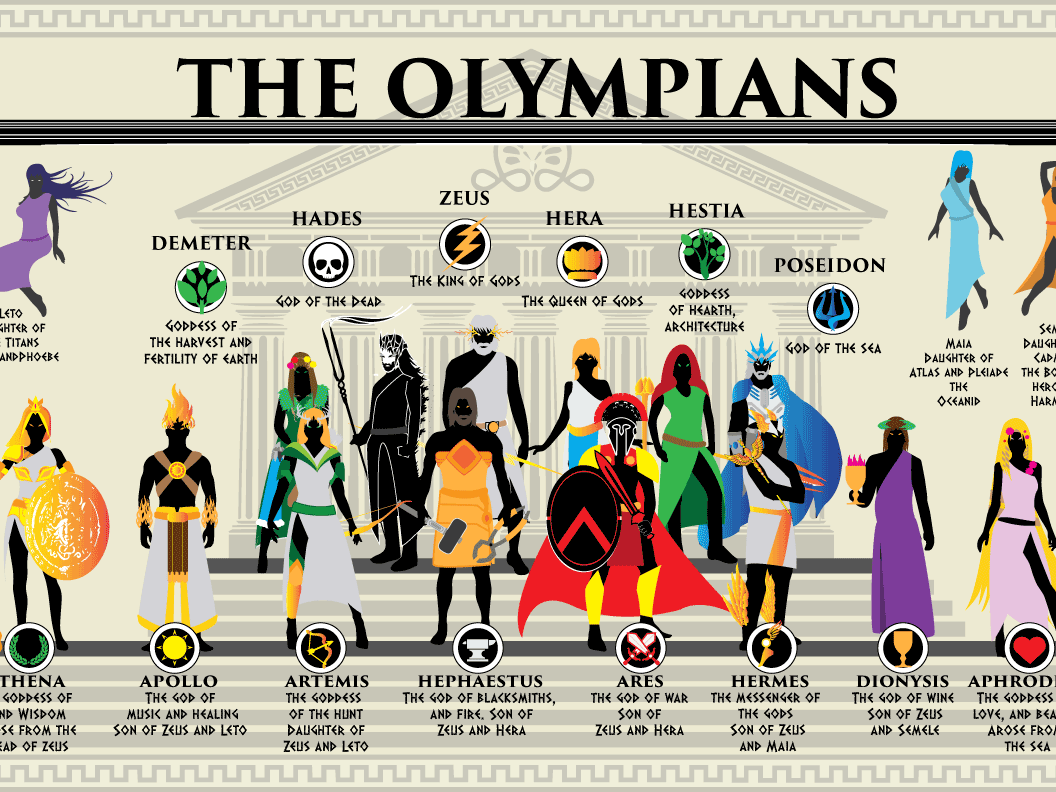
ᐅ Essays On Greek Mythology 📝 Free Argumentative, Persuasive
Though it is important to guard our hearts and minds, learning about ancient civilizations is also important. This is exceptionally true of Greek mythology because the allusions are far reaching and having a base knowledge will provide important context. While there are many reasons to learn about Greek mythology, here are the 3 most compelling.

The Beginning and Creation of Greek Mythology Greek Myths in
About Mythology. The simplest and most direct way to approach mythology is to look at its subject matter. In the broadest terms myths are traditional stories about gods, kings, and heroes. Myths often relate the creation of the world and sometimes its future destruction as well. They tell how gods created men.
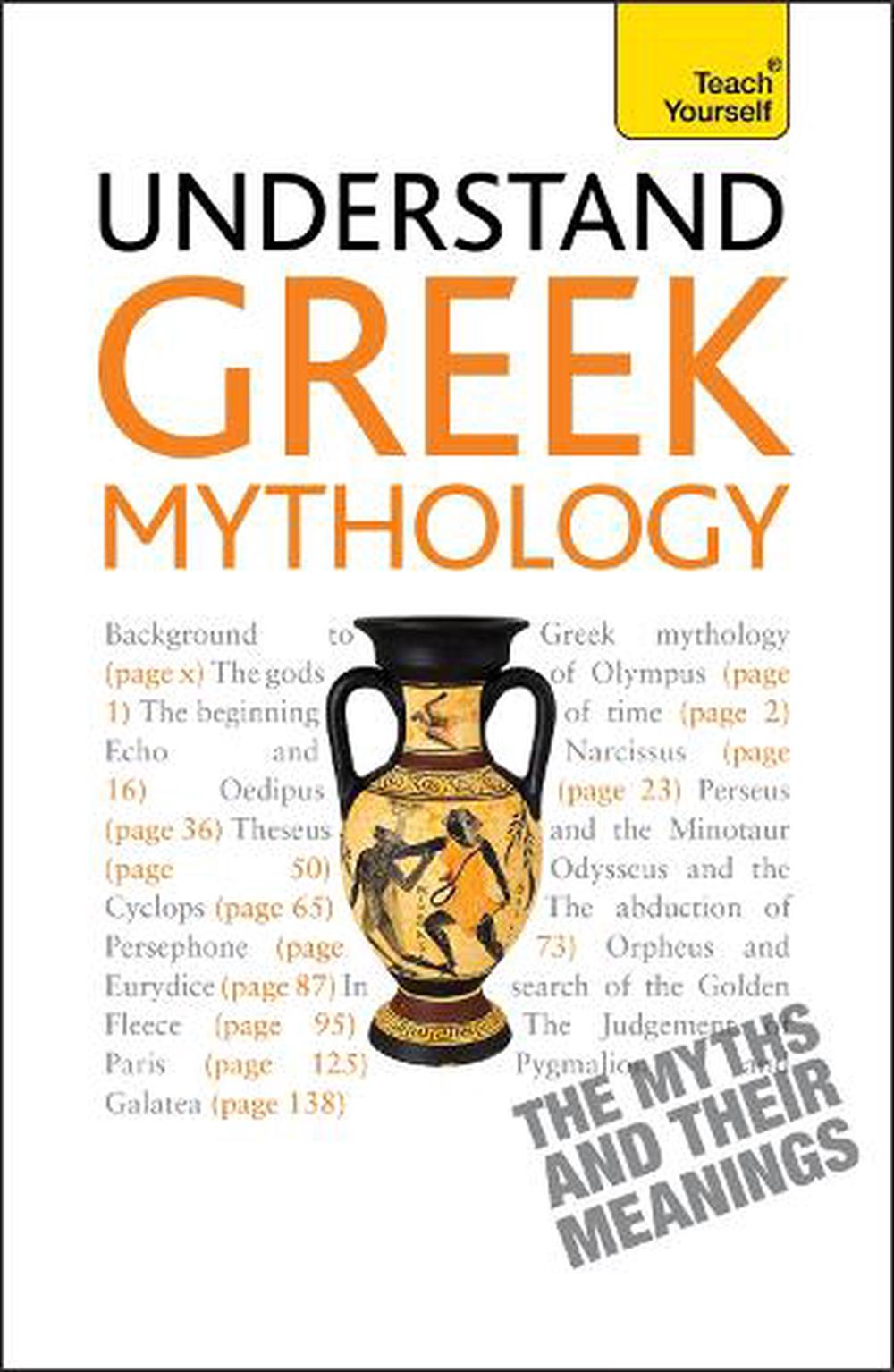
Understand Greek Mythology by Steve Eddy (English) Paperback Book Free
Mythology Fundamentals. The deceptively simple question, "what is mythology" produces a range of complex answers. Mythology is a category of human expression that defies uncomplicated definitions. While myths rest under the label of tradition or story or legend, they vary in their purpose and the manner in which they are told.

PPT Understanding the Basics of Greek Mythology PowerPoint
An etymological aetiological myth explains the origin of a word. (Etymology is the study of word origins.) For example, you could explain the name of the goddess Aphrodite by saying that she was born in sea foam, since aphros is the Greek word for sea foam. A religious aetiological myth explains the origin of a religious ritual. For example.
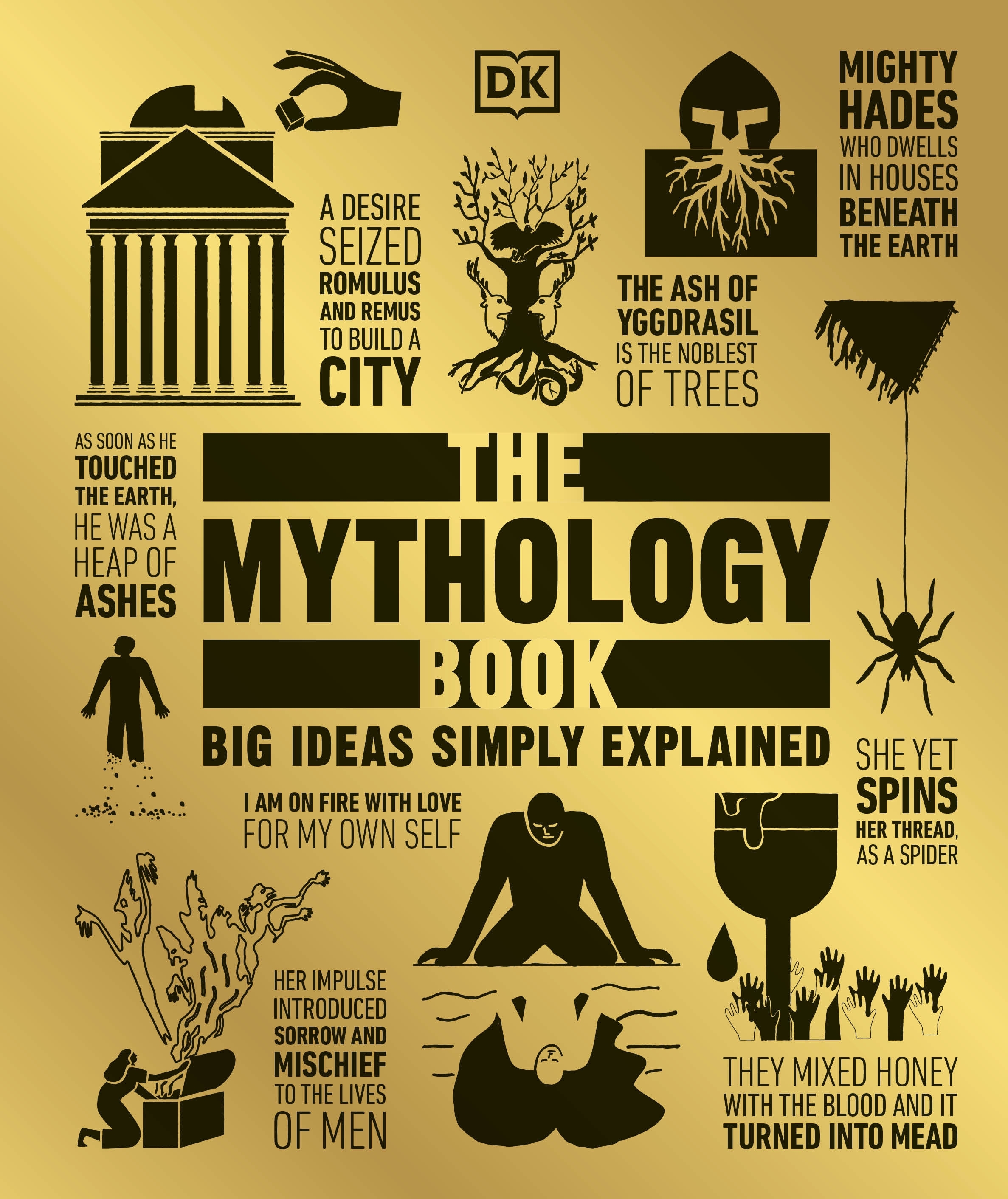
The Mythology Book by DK Penguin Books Australia
This mythology contains countless tales of gods, monsters, human and semi-divine heroes, adventures, quests, and wars. Some tales deal with things completely in the divine realm, outside of the human world. Other myths are clearly designed to explain how the human world came to be the way it is today.

Greek Mythology A Fascinating Guide to Understanding the Ancient Greek
myth, a symbolic narrative, usually of unknown origin and at least partly traditional, that ostensibly relates actual events and that is especially associated with religious belief.It is distinguished from symbolic behaviour (cult, ritual) and symbolic places or objects (temples, icons). Myths are specific accounts of gods or superhuman beings involved in extraordinary events or circumstances.

PDF Mythology A Fascinating Guide to Understanding Greek Mythology…
Greek mythology, body of stories concerning the gods, heroes, and rituals of the ancient Greeks and Classical antiquity. That the myths contained a considerable element of fiction was recognized by the more critical Greeks, such as the philosopher Plato in the 5th-4th century bce. In general, however, in the popular piety of the Greeks, the.
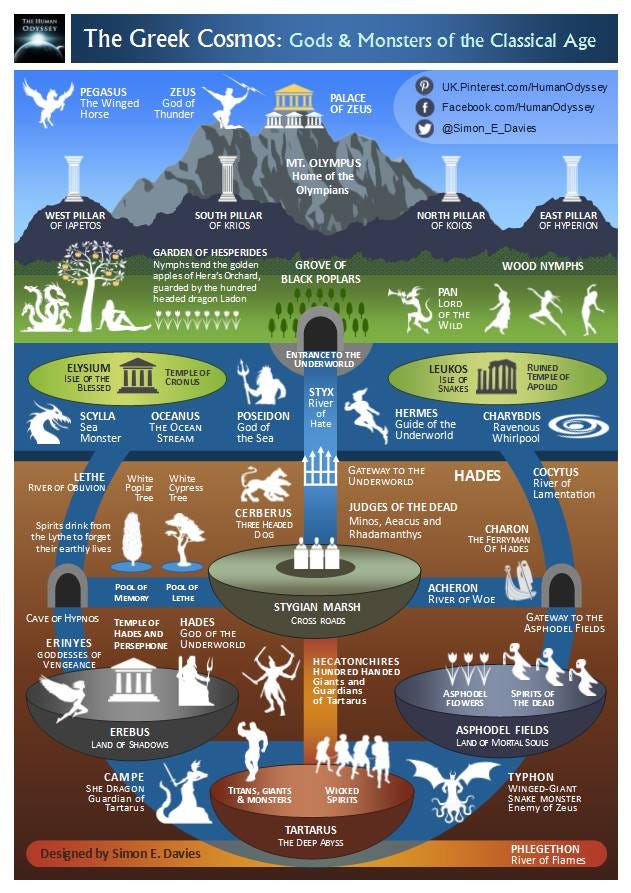
The Greek Cosmos Heavens, Earth & Underworld by Mythopia Medium
Within this context, the mythology has a key role in civilization and cultural movements throughout the history. The awareness of Phrygia is remarkably high in all over the world despite of being survived only two centuries (725-695/675 BCE) in Asia Minor. It owes its awareness to its history, geography and geopolitical position and mythology.
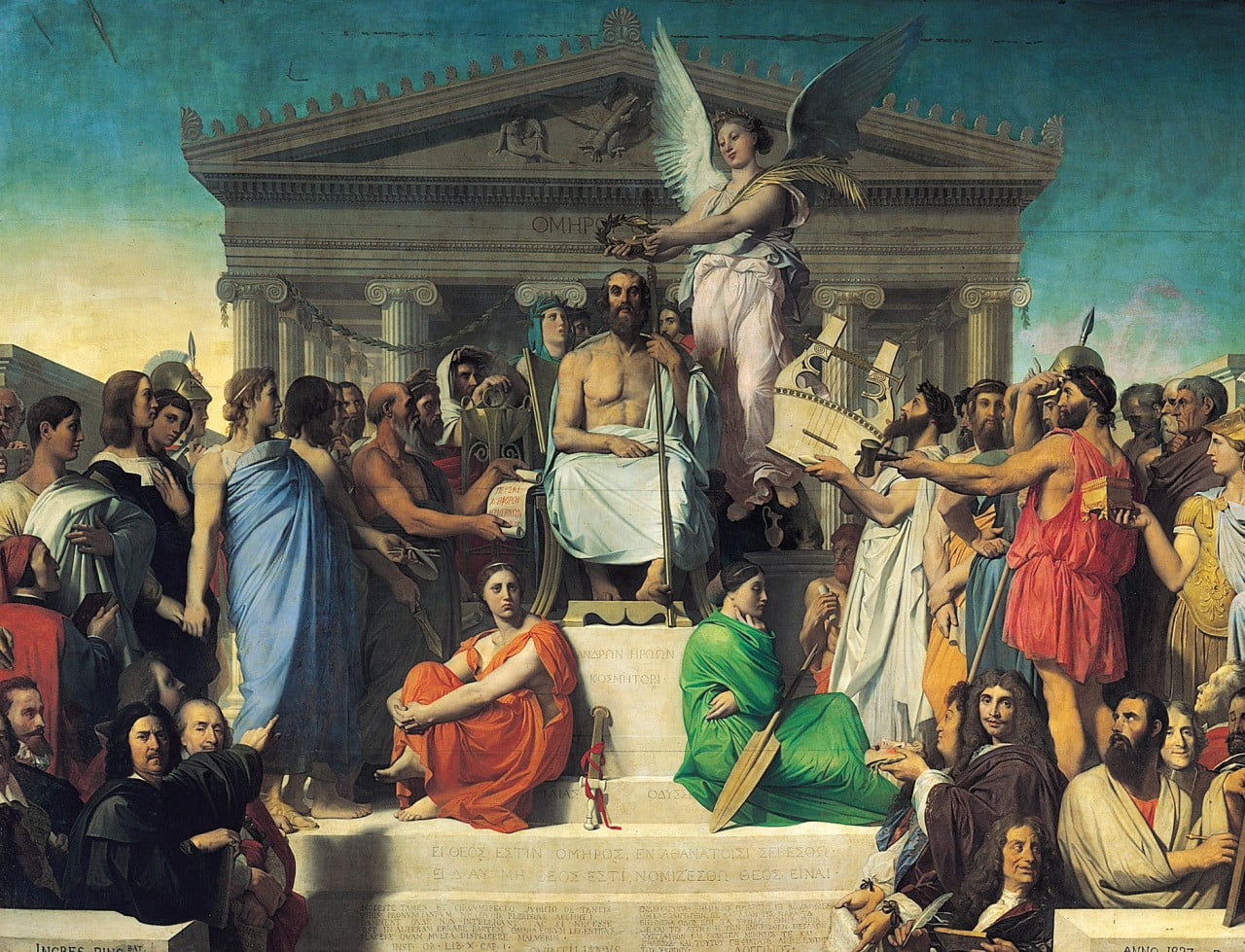
Group of people in front of pillar building painting, classic art
The genesis of modern understanding of Greek mythology is regarded by some scholars as a double reaction at the end of the 18th century against "the traditional attitude of Christian animosity mixed with disdain, which had prevailed for centuries", in which the Christian reinterpretation of myth as a "lie" or fable had been retained. In Germany, by about 1795, there was a growing interest in.

Mythology A Fascinating Guide to Understanding Greek Mythology, Norse
Our Mission. At Mythology Source our mission is simple. Present everything related to myths in a format that is modern and easy to understand. All our articles are backed up with expert research and presented in a way that you can actually read, enjoy and understand. Quite simply - we give you all the classic mythology with a modern day twist.
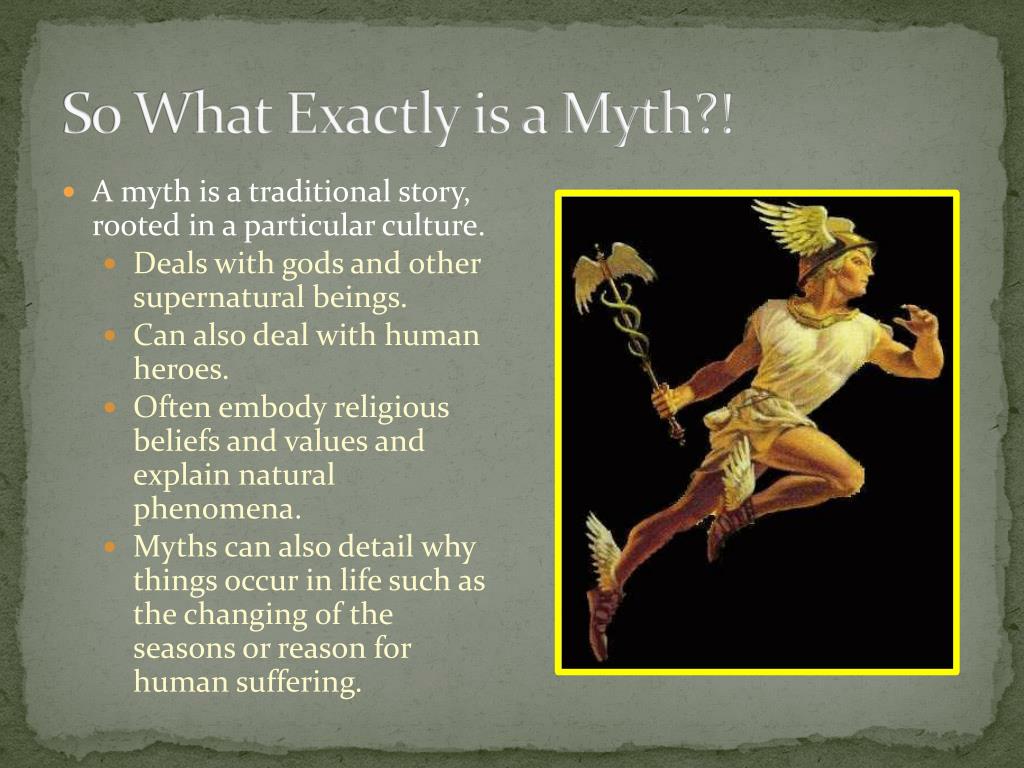
PPT MYTHOLOGY PowerPoint Presentation, free download ID2266023
Myth and history. Myth and history represent alternative ways of looking at the past. Defining history is hardly easier than defining myth, but a historical approach necessarily involves both establishing a chronological framework for events and comparing and contrasting rival traditions in order to produce a coherent account. The latter process, in particular, requires the presence of writing.